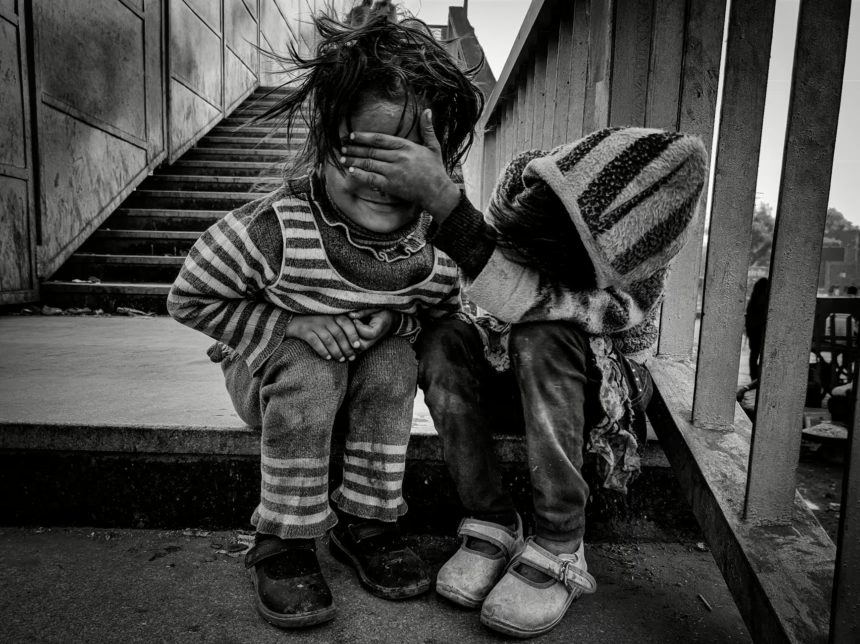Millions of Children At Risk: The Stark Reality of Unvaccinated Kids
The health and well-being of our nation’s children are paramount. Yet, a concerning trend suggests millions of young Americans are being left vulnerable to preventable diseases. A recent report highlights that an estimated 14 million children do not receive any vaccinations, a statistic that carries significant implications for individual health and public safety.
The Growing Challenge of Vaccine Gaps
According to NPR’s reporting on health topics, the number of children missing out on crucial immunizations is substantial. These vaccines are designed to protect against a range of serious illnesses, from the highly contagious measles to life-threatening conditions like pneumonia and severe diarrhea. The sheer scale of this unvaccinated population presents a complex public health challenge that demands careful consideration.
The reasons behind vaccine hesitancy or refusal are multifaceted. While specific data on the motivations for all 14 million children’s lack of vaccination isn’t detailed in the provided summary, broader trends in public health discussions often point to concerns about vaccine safety, perceived risks versus benefits, and access to healthcare services. It is crucial to understand these diverse perspectives to address the issue effectively.
Measles: A Resurgent Threat for Unprotected Children
One of the most pressing concerns highlighted by the NPR report is the threat posed by measles. This highly contagious viral illness, once largely controlled in many developed countries, has seen a resurgence in recent years, largely due to declining vaccination rates. For children who are not vaccinated, measles can lead to severe complications such as ear infections, pneumonia, diarrhea, and in rare cases, encephalitis (swelling of the brain), which can cause permanent disability or even death.
The summary specifically mentions measles as a significant danger for unvaccinated children, underscoring the importance of the measles, mumps, and rubella (MMR) vaccine. Public health officials consistently advocate for high vaccination coverage to maintain herd immunity, a critical layer of protection for those who cannot be vaccinated, such as infants too young to receive certain vaccines or individuals with compromised immune systems.
Beyond Measles: Broader Health Risks
The threats facing unvaccinated children extend beyond measles. The summary also points to pneumonia and diarrhea as serious concerns. These conditions, while often treatable, can be particularly dangerous for young children and can lead to long-term health problems or fatalities. Vaccines play a vital role in preventing many common causes of these illnesses, including pneumococcal disease and rotavirus infections.
The World Health Organization and the Centers for Disease Control and Prevention (CDC) provide extensive information on the diseases prevented by routine childhood immunizations. These organizations detail how vaccines work by stimulating the body’s immune system to recognize and fight specific pathogens, thereby preventing infection or reducing the severity of illness.
Understanding the Tradeoffs and Public Health Implications
The decision not to vaccinate a child involves a complex interplay of perceived risks and benefits. Proponents of vaccination emphasize the overwhelming scientific consensus on vaccine safety and efficacy, citing decades of research and millions of lives saved. They argue that the risks associated with vaccine-preventable diseases far outweigh the minimal risks associated with vaccines themselves. Public health organizations, such as the CDC, maintain extensive data and resources detailing the safety monitoring of vaccines and the scientific evidence supporting their use.
Conversely, those with reservations often cite concerns about potential side effects, though scientific studies have largely debunked claims of widespread severe adverse reactions. The debate also touches upon individual liberty versus collective responsibility in public health. When vaccination rates fall below a certain threshold, the protection afforded by herd immunity diminishes, increasing the risk of outbreaks that can affect vulnerable populations, including the unvaccinated and those for whom vaccines are not fully effective.
What to Watch For: The Future of Childhood Immunization
The ongoing challenge of ensuring high vaccination rates requires continued vigilance and proactive public health strategies. Experts will be closely monitoring vaccination trends, particularly in the wake of any disease outbreaks. Efforts to improve vaccine access, address misinformation, and build trust within communities will be crucial. Understanding the evolving landscape of childhood health and the role of preventative measures like vaccination is essential for policymakers, healthcare providers, and parents alike.
Key Takeaways for Parents and Guardians
- An estimated 14 million children are not receiving any vaccines, leaving them vulnerable to serious diseases.
- Measles, pneumonia, and severe diarrhea are among the significant health threats faced by unvaccinated children.
- Vaccines are a critical tool for preventing these and other infectious diseases, protecting both individual children and the wider community.
- Public health organizations provide extensive, evidence-based information on vaccine safety and efficacy.
- Maintaining high vaccination rates is essential for community-wide protection through herd immunity.
Engaging with Reliable Health Information
For parents and guardians seeking to make informed decisions about their children’s health, consulting reputable sources is paramount. The Centers for Disease Control and Prevention (CDC) offers comprehensive information on recommended childhood immunizations, including details on the diseases they prevent and vaccine safety. The World Health Organization (WHO) also provides global perspectives and scientific backing for vaccination programs.
It is advisable to discuss any concerns or questions directly with a pediatrician or healthcare provider. They can offer personalized advice based on a child’s specific health needs and provide accurate, evidence-based information to guide decision-making.
References
- Vaccines for Your Children – Centers for Disease Control and Prevention (CDC)
- Immunization coverage – World Health Organization (WHO)




